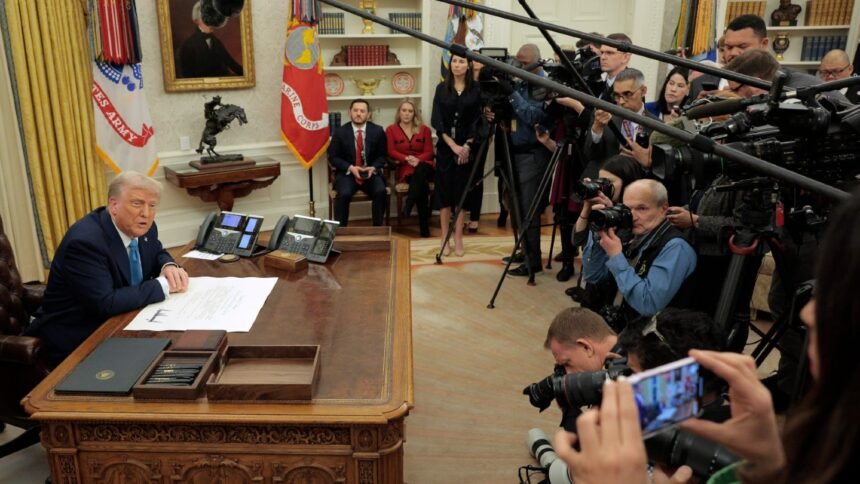The recent implementation of tariffs on imports by the new Trump administration in the US is signaling a shift in global trade dynamics, according to William Bain, head of trade policy at the British Chambers of Commerce. In a recent episode of GlobalData’s Instant Insights podcast, Bain highlighted that the era of liberalizing tariffs to zero is now being replaced by a resurgence of tariffs, which is likely to persist in the foreseeable future.
The announcement of new additional tariffs on imports from Canada, Mexico, and China, followed by a temporary halt on tariffs from Canada and Mexico, indicates the administration’s aggressive stance on trade. The European Union is also on the radar for potential tariffs in the near future.
Both Bain and Marco Forgione, director general of the Chartered Institute of Export and International Trade, emphasized that the motivations behind these tariffs go beyond trade issues. They are seen as geopolitical and geoeconomic tools to advance the America First agenda and exert political and economic power on the global stage.
The broad scope of the tariffs poses a threat to global trade, but there are potential benefits for the US, such as reshoring of production, changes in supply chains, and revenue generation for domestic tax cuts. However, the impact on the global economy and US trading partners, particularly China, is significant.
The uncertainty surrounding tariffs creates opportunities for certain industries and businesses worldwide, with potential trade diversion as goods seek alternative markets. Industries in the UK, like automotive, aerospace, and food and drink, could benefit from these shifts.
However, the risk of a global trade war looms large if retaliatory actions escalate. A sustained trade war could reverse global trade growth and have a detrimental impact on the global economy.
In conclusion, the current trade landscape is evolving rapidly, with tariffs becoming a key tool in geopolitical strategies. Businesses must adapt to the changing trade environment and explore opportunities while navigating the risks associated with escalating trade tensions.







